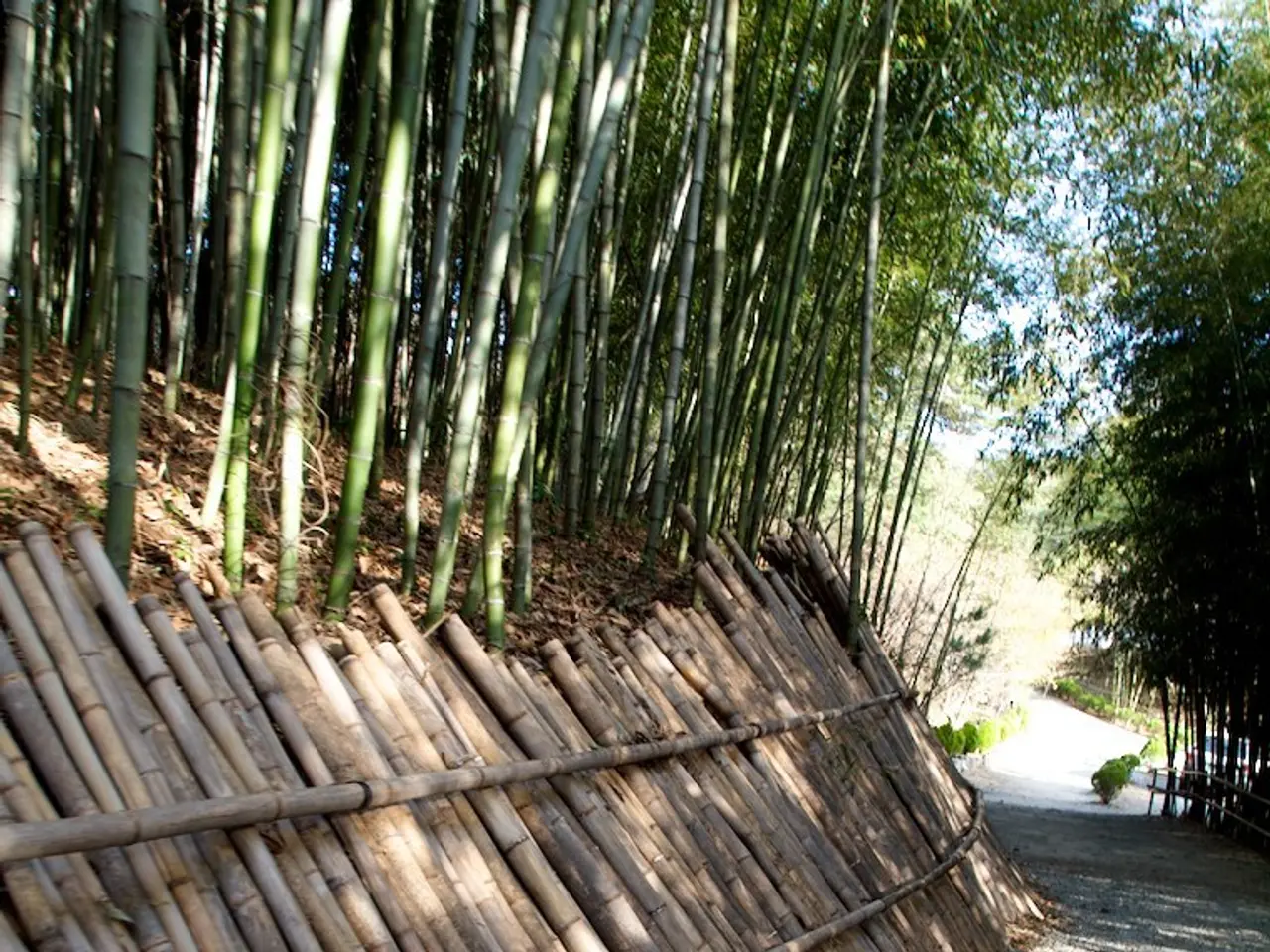Advocacy group promotes bamboo as eco-friendly solution, emphasizing its role in conserving ecosystems and maintaining cultural traditions
The Bamboo Foundation, a new organisation dedicated to promoting sustainable development, cultural preservation, and climate change mitigation, has launched its flagship initiative, "Luy Tre Lang" (Bamboo Village), in Ho Chi Minh City, Vietnam.
The initiative, which was officially unveiled on August 2, 2025, is built around three core pillars: preserving, promoting, and supporting bamboo-related cultural, ecological, and social values.
Luy Tre Lang aims to create green belts of resilience and build communities that thrive while cutting carbon emissions. It seeks to develop bamboo-centric ecological communities nationwide, leveraging bamboo’s fast growth, high carbon absorption, and versatility to replace less sustainable materials and revitalise traditional craft villages.
Nguyen Tuana Khoi, chairman of the Bamboo Foundation, emphasises bamboo as a practical solution for sustainable development, identity preservation, and climate resilience. He sees the initiative as a major step towards unlocking the potential of Vietnam’s bamboo sector and mobilising both domestic and international resources.
The launch of the Bamboo Foundation and the Luy Tre Lang initiative marks the beginning of a series of events leading up to World Bamboo Day (September 18) in Vietnam. These events will include the Bamboo Forum, which will bring together researchers, entrepreneurs, government representatives, and communities to develop integrated strategies for the bamboo sector's sustainable growth.
The Bamboo Forum is not just about fostering research and innovation to expand bamboo's applications across various industries, although this is an implicit goal of the Luy Tre Lang initiative. It also aims to raise public awareness about bamboo's environmental and climate-resilient benefits, a goal that is not explicitly stated in the Bamboo Foundation's mission but is clearly implied in the Luy Tre Lang initiative.
Bamboo, known for its rapid growth and carbon absorption capabilities, is seen as a sustainable alternative to materials like plastic, concrete, and steel. It plays a crucial role in preventing soil erosion, rehabilitating degraded land, and generating high-value products. By advancing a sustainable bamboo industry, the Bamboo Foundation aims to preserve Vietnam’s traditional bamboo craft heritage and rural landscapes while contributing significantly to environmental sustainability.
In essence, the Bamboo Foundation's Luy Tre Lang initiative is more than just an environmental project. It's a vision for a future where communities thrive, cultural heritage is preserved, and the environment is protected, all through the power of bamboo.
- The Bamboo Foundation, focusing on sustainable development, cultural preservation, and climate change mitigation, has introduced an initiative, "Luy Tre Lang," which prioritizes bamboo's cultural, ecological, and social values.
- Luy Tre Lang targets the creation of resilient green belts and communities while minimizing carbon emissions, aiming to establish bamboo-centric ecological communities across Vietnam.
- The initiative, embedded in three core pillars, seeks to utilize bamboo's fast growth, high carbon absorption, and versatility to substitute less sustainable materials and breathe life into traditional craft villages.
- Nguyen Tuana Khoi, chair of the Bamboo Foundation, emphasizes bamboo as a solution for sustainable development, identity preservation, and climate resilience, considering the initiative a significant step towards exploiting Vietnam’s bamboo sector potential.
- The launch of Luy Tre Lang and the Bamboo Foundation is a precursor to a series of events leading up to World Bamboo Day in Vietnam, with the Bamboo Forum being one such event, uniting researchers, entrepreneurs, government reps, and communities for sustainable bamboo sector growth.
- Besides fostering research and innovation to expand bamboo's applications across industries, the Bamboo Forum aims to increase public awareness about bamboo's environmental and climate-resilient benefits, an indirect goal of Luy Tre Lang.
- Bamboo, known for its rapid growth and carbon absorption capabilities, is viewed as a sustainable alternative to materials like plastic, concrete, and steel, contributing to soil erosion prevention, land rehabilitation, and high-value product generation.
- The Bamboo Foundation's Luy Tre Lang initiative is more than just an environmental project; it paints a vision for a future where communities prosper, cultural heritage is preserved, and the environment is protected, all through bamboo's power.




